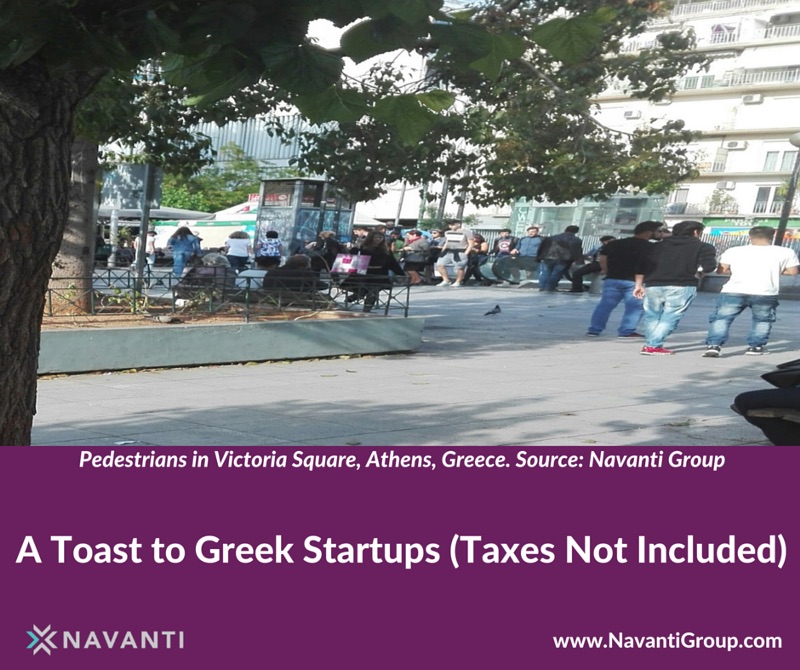
Kostas Vergopoulos, an economics professor at the University of Paris III, fell asleep on live television. During a live debate on new austerity measures in Greece, Vergopoulos fell asleep while his opponent, Public Finance Professor Nikolaos Karavitis at Panteion University, discussed the positive benefits of “taxes, taxes, taxes!”
Pessimism surrounding the new austerity measures obscures the strength of entrepreneurial micro-businesses in Greece. Greece’s new austerity measures, which started 1 June 2016, introduced a 20 percent tax rate on alcohol and coffee. Excise duties increased existing ones on fuel, petrol, heating oil, and natural gas. TV subscriptions, landlines, and internet connections rose 10 to 15 percent. Recent surveys noted that almost 70 percent of Greeks believe they cannot pay their taxes and that almost 40 percent of companies are considering relocation abroad.
>
“We are not very reactionary these days. Taxes and reforms have been imposed several times over the past 18 months. It is pointless to protest.”
However, an April 2016 survey of 300 companies across various sectors and scales noted that market opportunities were a reason to stay. Greece was one of the top 10 countries that made the greatest gains in entrepreneurship in 2015. Micro-enterprises, companies that employ less than 10 people, account for 96.7 percent of the non — financial economy and employ almost 59 percent of working individuals in Greece.
>
“These businesses will not pay the new taxes. They will try to steal. They will not issue invoices or pay checks. These are common practices in restaurants, hair salons, and other small businesses. The large businesses will leave for Bulgaria, Cyprus, or other countries.”
Small IT enterprises experienced the largest growth. Since the start of the crisis, Greek entrepreneurs started over 200 new tech companies, despite the nation’s rating as the worst place in the European Union to conduct business. Small IT enterprises increased employment every year between 2008–2015. Sales in 2015 grew by 17 percent in Greece vs. 5 percent in other European countries.
Greek start-ups are a bright spot within the current economic environment. While austerity measures might put some professors to sleep, Greek start-ups might be something to which all Greeks can drink a glass of cider or perry.

